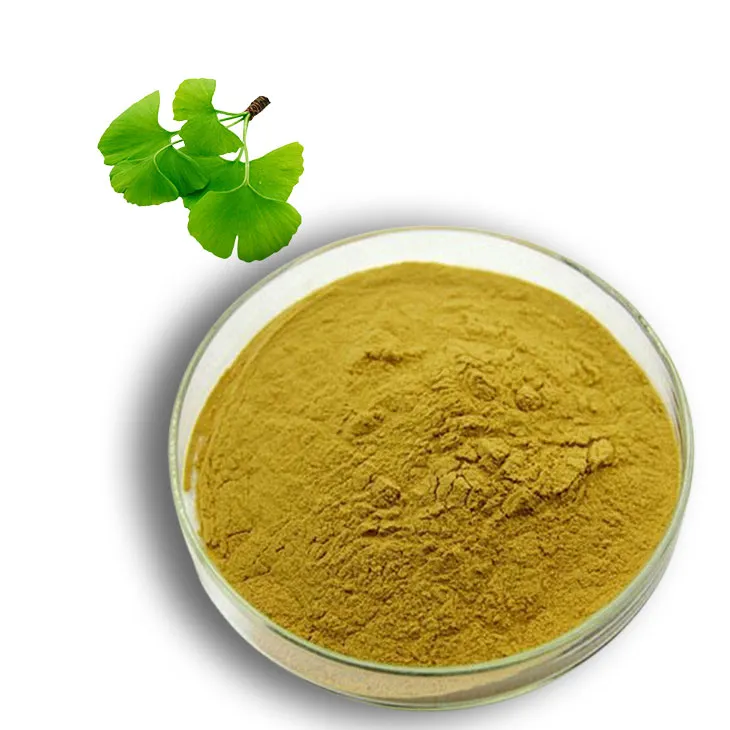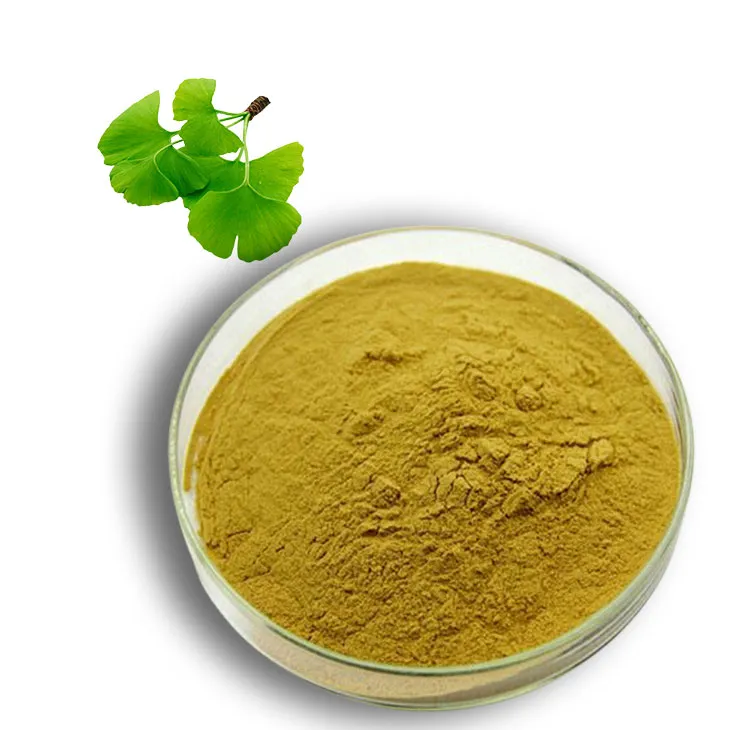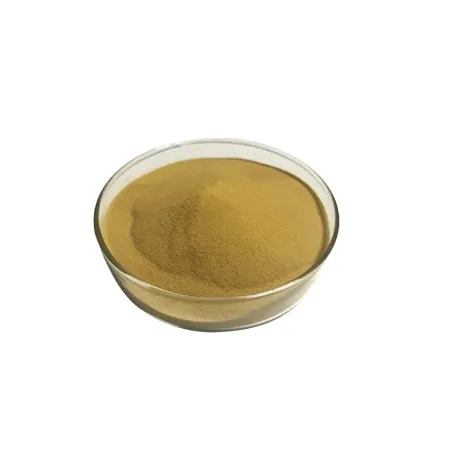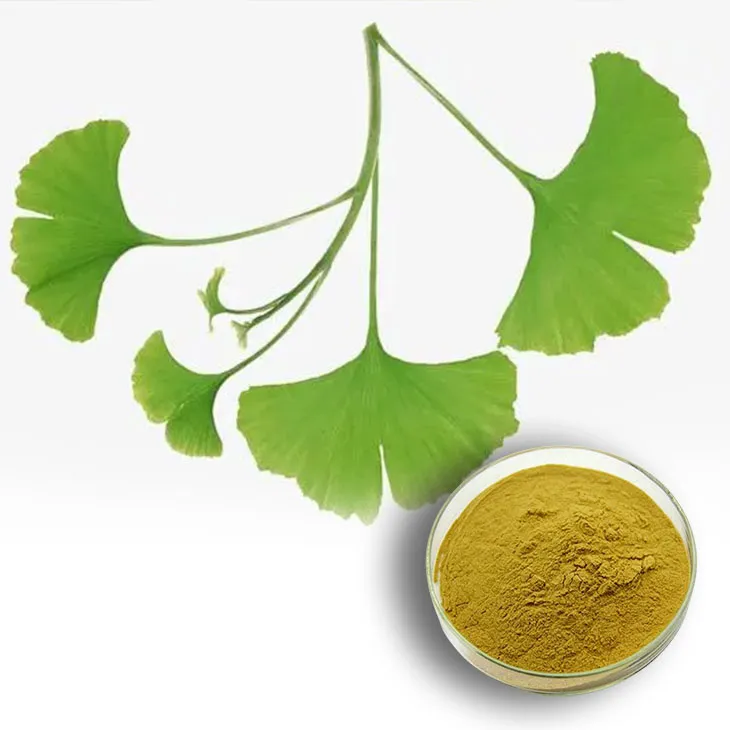- 0086-571-85302990
- sales@greenskybio.com
Wholesale Ginkgo Biloba Extract Suppliers.
2024-11-28

Introduction
Ginkgo biloba leaf extract has emerged as a highly significant ingredient across numerous sectors. Wholesale suppliers play a vital role in guaranteeing its continuous availability in the market. This article delves into the various aspects of these suppliers' operations, including raw material quality control, research and development, supply chain management, and industry standards compliance.

Raw Material Quality Control
Wholesale suppliers of ginkgo biloba leaf extract place a great emphasis on strict control of the raw material right from the start. They meticulously inspect the ginkgo biloba trees from which the leaves are harvested. There are several factors that are taken into account:
Tree Age
The age of the ginkgo biloba trees is a crucial factor. Younger trees may have leaves with different chemical compositions compared to older ones. Generally, older trees are often preferred as they tend to produce leaves with more stable and potent chemical profiles. Suppliers need to ensure that the trees are of an appropriate age to yield high - quality leaves for extraction.
Growth Environment
The growth environment of the ginkgo biloba trees has a profound impact on the quality of the leaves. Trees growing in areas with optimal soil conditions, proper sunlight exposure, and appropriate water availability are more likely to produce superior leaves. For example, ginkgo biloba trees growing in well - drained soil with a good balance of nutrients are more likely to have healthy leaves. Suppliers must carefully assess the growth environment of the source trees to ensure the quality of the raw material.
Harvesting Time
The time at which the ginkgo biloba leaves are harvested is also of great significance. Leaves harvested at the wrong time may not contain the optimal levels of active compounds. For instance, harvesting too early or too late in the season can result in leaves with lower concentrations of the desired bioactive substances. Suppliers need to have in - depth knowledge of the ideal harvesting time for ginkgo biloba leaves to obtain the best - quality raw material.
Once the leaves are harvested, they are processed in a hygienic and well - regulated environment. This is essential to preserve their natural properties. The processing methods used are carefully selected to ensure that the active compounds in the leaves are not degraded. Advanced extraction techniques are often employed to obtain a high - quality ginkgo biloba leaf extract.

Research and Development
These suppliers are frequently engaged in research and development activities. This is not only beneficial for their own business growth but also for the overall development of the ginkgo biloba leaf extract industry.
New Applications
They invest resources in studying the potential new applications of ginkgo biloba leaf extract. One area of exploration is its use in anti - aging skincare products. Ginkgo biloba extract is rich in antioxidants, which can help combat free radicals and reduce signs of aging such as wrinkles and fine lines. Another important area is its potential in the treatment of neurodegenerative diseases. Some studies suggest that the extract may have properties that can slow down the progression of diseases like Alzheimer's and Parkinson's. By delving into these new applications, suppliers can:
- Expand their product range, offering more diverse products to their clients.
- Meet the evolving demands of different industries, such as the beauty and pharmaceutical industries.
- Help their clients gain a competitive edge in the market by providing unique and innovative products.
Product Improvement
Research and development also focus on improving the existing ginkgo biloba leaf extract products. This may involve enhancing the purity of the extract, improving its stability, or finding more efficient extraction methods. For example, suppliers may work on developing new extraction techniques that can increase the yield of the active compounds while reducing the production cost. By constantly striving for product improvement, suppliers can ensure that their products remain competitive in the market.

Supply Chain Management
An efficient supply chain is absolutely crucial for wholesale suppliers of ginkgo biloba leaf extract.
Inventory Management
Proper inventory management is the first step in ensuring a smooth supply chain. Suppliers need to maintain an appropriate level of inventory to meet the market demands without overstocking or understocking. This requires accurate forecasting of market trends and demand patterns. They need to consider factors such as seasonal variations in demand, emerging market trends, and changes in customer preferences. By having a well - managed inventory, suppliers can:
- Reduce storage costs associated with excessive inventory.
- Avoid stock - outs that can lead to lost sales and dissatisfied customers.
Timely Transportation
Timely transportation of ginkgo biloba leaf extract is another key aspect of supply chain management. Suppliers need to ensure that the products are delivered to their customers on time. This involves selecting reliable transportation partners, optimizing transportation routes, and ensuring proper packaging to protect the products during transit. Delayed transportation can result in product spoilage, especially for ginkgo biloba leaf extract which may be sensitive to environmental factors such as temperature and humidity. By ensuring timely transportation, suppliers can:
- Meet customer delivery deadlines, enhancing customer satisfaction.
- Reduce the risk of product quality degradation during transit.
Coordination with Partners
Seamless coordination with different partners in the supply chain is essential. These partners may include raw material growers, processors, distributors, and retailers. Suppliers need to communicate effectively with all these partners to ensure a smooth flow of the product from the source to the end - user. For example, they need to coordinate with raw material growers to ensure a steady supply of high - quality leaves, and with distributors and retailers to ensure proper marketing and distribution of the final product. By having good coordination with partners, suppliers can:
- Respond quickly to any disruptions in the supply chain, such as changes in raw material availability or transportation issues.
- Optimize the overall supply chain efficiency, reducing costs and improving service quality.
Dealing with Challenges
There are several potential challenges that wholesale suppliers need to deal with in supply chain management. One major challenge is fluctuations in raw material availability. Ginkgo biloba leaves may be affected by factors such as weather conditions, pests, and diseases, which can lead to variations in the supply of raw materials. Suppliers need to have contingency plans in place to deal with such situations, such as sourcing from alternative regions or establishing long - term contracts with multiple growers. Another challenge is changes in international trade policies. These changes can impact the import and export of ginkgo biloba leaf extract, including tariffs, trade restrictions, and regulatory requirements. Suppliers need to stay informed about these changes and adapt their supply chain strategies accordingly.

Industry Standards and Compliance
Ginkgo biloba leaf extract wholesale suppliers must adhere to industry standards and regulatory requirements.
Quality Standards for the Extract
There are specific quality standards for ginkgo biloba leaf extract. These standards define the minimum and maximum levels of active compounds, as well as the acceptable levels of impurities. Suppliers need to ensure that their products meet these quality standards through rigorous testing and quality control procedures. For example, they may use advanced analytical techniques to measure the concentration of flavonoids and terpenoids in the extract. By complying with quality standards, suppliers can:
- Ensure the safety and effectiveness of their products for the end - consumers.
- Build a good reputation in the market, which can lead to increased customer trust and loyalty.
Packaging and Labeling Regulations
Packaging and labeling regulations also play an important role. The packaging of ginkgo biloba leaf extract needs to be suitable for protecting the product from environmental factors such as light, moisture, and air. It should also be designed in a way that is convenient for storage and transportation. The labeling should provide accurate information about the product, including the ingredients, usage instructions, and any potential side effects. Suppliers need to ensure that their packaging and labeling comply with relevant regulations to avoid any legal issues. By following packaging and labeling regulations, suppliers can:
- Protect the end - consumers by providing them with clear and accurate product information.
- Enhance the marketability of their products by presenting a professional and compliant appearance.
Conclusion
In conclusion, wholesale suppliers of ginkgo biloba leaf extract have a multi - faceted role to play in the market. Through strict raw material quality control, active research and development, efficient supply chain management, and compliance with industry standards, they can ensure the availability of high - quality ginkgo biloba leaf extract to meet the diverse needs of various industries. These suppliers are not only important for the growth and development of the ginkgo biloba leaf extract industry but also for the satisfaction and well - being of the end - consumers.
FAQ:
How do wholesale suppliers ensure the quality of ginkgo biloba leaf extract?
Wholesale suppliers ensure the quality of ginkgo biloba leaf extract through raw material quality control. They carefully inspect the ginkgo biloba trees considering factors like tree age, growth environment and harvesting time. The leaves are then processed in a hygienic and well - regulated environment to preserve their natural properties.
What role do wholesale suppliers play in research and development?
Wholesale suppliers are often involved in research and development. They invest in studying potential new applications of ginkgo biloba leaf extract, such as in anti - aging skincare products or treatment of neurodegenerative diseases. This enables them to provide innovative products to the market and help their clients gain a competitive edge.
How important is supply chain management for wholesale suppliers?
Supply chain management is crucial for wholesale suppliers. They need to ensure a steady supply of the extract to customers. This involves proper inventory management, timely transportation and seamless coordination with partners. They also need to handle challenges like raw material availability fluctuations and changes in international trade policies.
Why must wholesale suppliers adhere to industry standards?
Wholesale suppliers must adhere to industry standards and regulatory requirements. This includes quality standards for the extract, packaging and labeling regulations. Compliance protects end - consumers and helps build a positive reputation in the international market.
What are the main factors considered in raw material control?
The main factors considered in raw material control are the age of the ginkgo biloba trees, the growth environment, and the harvesting time. These factors can significantly influence the quality of the leaves and ultimately the extract.
Related literature
- The Therapeutic Potential of Ginkgo Biloba Extract: A Review"
- "Quality Control of Ginkgo Biloba Extract in the Global Market"
- "Ginkgo Biloba Extract: From Raw Material to Final Product"
- ▶ Hesperidin
- ▶ citrus bioflavonoids
- ▶ plant extract
- ▶ lycopene
- ▶ Diosmin
- ▶ Grape seed extract
- ▶ Sea buckthorn Juice Powder
- ▶ Beetroot powder
- ▶ Hops Extract
- ▶ Artichoke Extract
- ▶ Reishi mushroom extract
- ▶ Astaxanthin
- ▶ Green Tea Extract
- ▶ Curcumin Extract
- ▶ Horse Chestnut Extract
- ▶ Other Problems
- ▶ Boswellia Serrata Extract
- ▶ Resveratrol Extract
- ▶ Marigold Extract
- ▶ Grape Leaf Extract
- ▶ blog3
- ▶ blog4
-
Chinese suppliers of chastity berry extract.
2024-11-28
-
100% Organic Aged Garlic Extract.
2024-11-28
-
Chinese Chastity Berry Extract Factory.
2024-11-28
-
Chia Seed Powder
2024-11-28
-
Moringa powder
2024-11-28
-
Berberis aristata Extract
2024-11-28
-
Sea buckthorn oil
2024-11-28
-
Clove Powder
2024-11-28
-
Medicinal Marshmallow Extract
2024-11-28
-
Quercetin
2024-11-28
-
Stevia Extract
2024-11-28
-
Cassia Seed Extract
2024-11-28
-
Okra Extract
2024-11-28





















